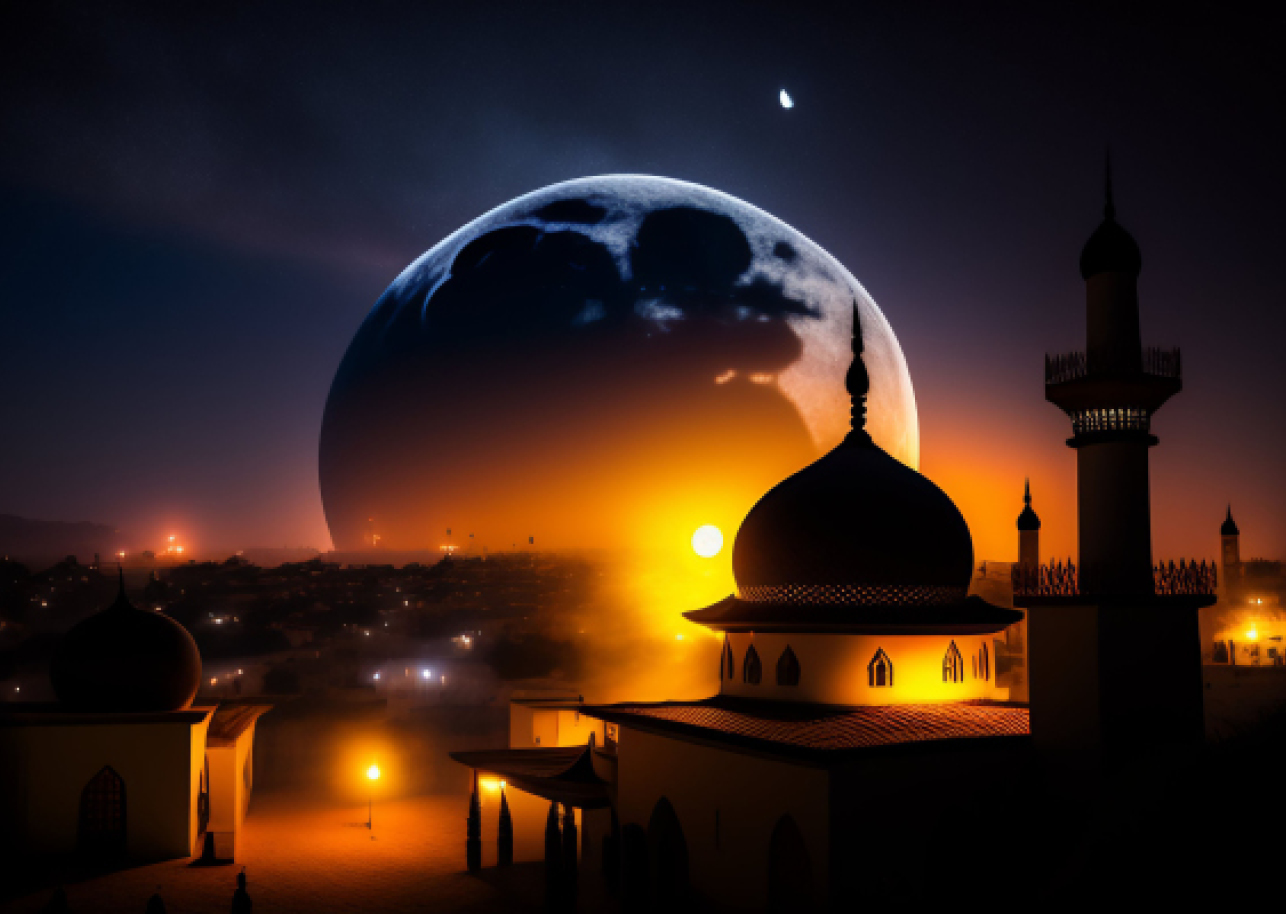The one-month Ramadan fast for this year begins today, Monday, March 11, 2024, in Nigeria. This is sequel to the official announcement, last night, by the Sultan of Sokoto and President-General for the Nigeria Supreme Council for Islamic Affairs (NSCIA), Alhaji Muhammadu Sa’ad Abubakar III. According to the Sultan, reports of the moon sighting were received from Muslim leaders across the country; indicating that the crescent of Ramadan was sighted in some Nigerian towns and cities. While urging Muslims to use the holy month to rededicate themselves to the teachings of their religion, the Sultan also enjoined them to pray fervently for peace and stability of Nigeria and the world in general.
In a press statement issued in Kaduna by the Secretary-General of the Jama’atu Nasril Islam, Prof. Khalid Abubakar Aliyu, Muslims were called upon to use the Ramadan period to intensify prayers for divine intervention in the country’s economic challenges; and urging the wealthy to pay Zakat promptly to those deserving as a way of easing the current hardship being faced by the less-privileged. While calling upon persons who have taken up arms against the state to, in the spirit of Ramadan fear Allah and stop threatening the country’s peace and security, Prof. Khalid urged the government to secure the safe release of victims of recent abductions at the Internally Displaced Persons (IDP) camp in Ngala, Borno State as well as the kidnapped principal and students of schools in Kuriga, Kaduna State.
Observing the Ramadan fast in the ninth month of the Islamic lunar calendar is one of the five fundamental principles of Islam. Ramadan fast in Islam entails abstinence from eating, drinking, smoking and conjugal relationships from dawn to sunset for the entire period of the month of Ramadan. The injunction of this religious obligation is sanctioned in Qur’an 2:183 wherein Allah says, “O ye who believe! Fasting is prescribed to you as it was prescribed to those before you that ye may (learn) self-restraint”. Ramadan fast is observed for 29 or 30 days, depending on when the crescent of Shawwal, the tenth month in the Islamic lunar calendar, is sighted.
When a Muslim observes the Ramadan fast, the pains of physical deprivation are felt but patiently endured. This deprivation and endurance, though temporary, make the individual conscious of the effects of such pains suffered by many others, who either dwell in perpetual poverty or have limited access to basic necessities of life. To ease the thirst and fatigue suffered while fasting, we call on electricity distribution companies in the country to improve public power supply; more so that Muslims can observe the entire Ramadan fast under very hot weather conditions.
The wealthy among Muslims are enjoined to use the Ramadan period to exhibit the virtues of hospitality, charity and kindness, especially to indigent and vulnerable members of society. As part of the sacrifices enjoined upon Muslims in Ramadan, prophetic traditions in Islam exhort them to give alms, feed the poor and invite others including non-Muslims to break the Ramadan fast with them. This single act of benevolence in Ramadan would foster intra and inter-religious understanding and tolerance; a necessary requirement for national social cohesion which the multi-faith and heterogeneous Nigerian society is in dire need of.
Ramadan is a holy season, and therefore, should not be accompanied by unholy acts such as hoarding of grains or illegitimate increases in prices of food items that are already on the high side. Hoarding, which is a manifestation of greed, is prohibited (haram) in Islam. We urge traders in essential commodities not to take undue advantage of the Ramadan period to make usurious profits by exploiting the high demand of some commodities, to increase their prices.
Preachers should be true to their calling as religious leaders; remaining sensitive to the peculiar circumstances in the country. Inflammatory expressions should be avoided at all Ramadan preaching sessions. We advise scholars and preachers to choose their words during their commentary of the Qur’an (tafsir); avoiding statements that could provoke aggrieved and oppressed persons or groups.
In the face of the current difficult times Nigerians are passing through, now and more than ever before is the time for Muslims (especially the poor) to exhibit the virtue of patience and perseverance. Since patience spiritually goes along with prayers, we encourage Muslims to engage and remember Nigeria in their supplications during this holy season in which a day within the last 10 days of the month is more sacred than a thousand months. With this embedded privilege in Ramadan, we urge Muslims to ask Allah who said in the Qur’an that “with every hardship comes ease” to ease Nigeria out of its current economic and security challenges, including kidnapping, banditry, resurgence of Boko Haram, and other forms of violent crimes.
In order to take full advantage of all the spiritual opportunities availed by Ramadan, Muslims are advised to avoid gorging themselves on meals such that it becomes impossible for them to wake up and spend the night in worship. The prophetic tradition provides for Muslims to exercise moderation in everything they do.
Daily Trust wishes Muslims a peaceful and happy 1445AH Ramadan fast.

 Join Daily Trust WhatsApp Community For Quick Access To News and Happenings Around You.
Join Daily Trust WhatsApp Community For Quick Access To News and Happenings Around You.


